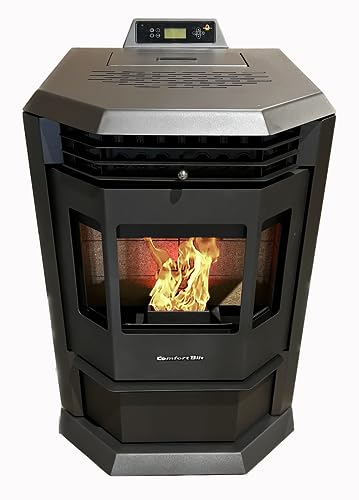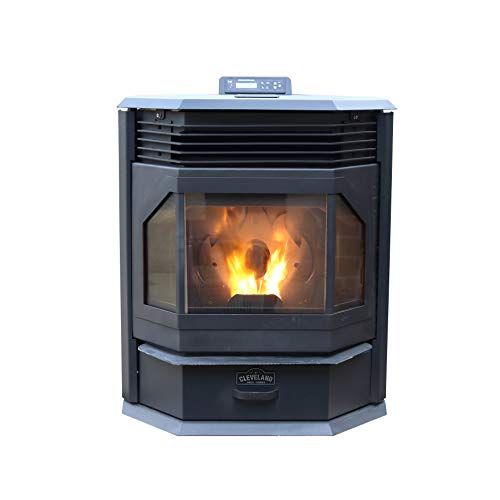What's The Job Market For Pellet Stoves For Rvs Professionals?
페이지 정보
작성자 Tom Grammer 작성일 24-12-18 21:08 조회 5 댓글 0본문
 Pellet Stoves For RVs Vs Wood Stoves
Pellet Stoves For RVs Vs Wood StovesRVs offer a cozy camping experience, but chilly nights require a reliable heating source. Wood stoves and pellets stoves are two popular options. Both stoves have their own advantages but the one that is right for you will depend on your individual requirements and preferences.
Pellet stoves make use of biomass that is renewable that is made from recycled sawdust and wood chips. They are highly efficient and produce steady heat. They are simple to use, and they do not emit harmful emissions.
Heating that is cost-effective
Pellet stoves for RVs are an efficient alternative to propane-based heaters. They burn renewable biomass fuel and have a high combustion efficiency that can save you money in the long run. They also use less energy, reducing carbon footprints and energy consumption. Additionally, pellet stoves have an incredibly compact design and can be used with any standard propane tank. This makes them a great option for those who wish to avoid the hassle of refilling and storing propane tanks.
The capacity of a stove to heat large areas is one of its most significant features. A high-quality stove will be able to warm an entire motorhome or camper. The best RV pellet stoves can supply up to 8,000 BTUs of heat enough to keep you warm and comfortable during your camping trip. Some models come with thermostats that are programmed to automatically turn the stove on and off according to your schedule. They can also notify you when the pellets are running low or require cleaning.
Wood and pellet stoves small stoves are both popular options for RVs, and both provide great heating performance. They are also cost-effective and can be used in different climates. Before you decide on a stove you must know the differences between these two types of stoves.
Wood stoves use wood for fuel, which must be collected and stored with care. This can be a problem for those who travel in remote regions. Wood can also absorb moisture from the atmosphere, which can cause problems with your RV's interior. However you can get an array of wood-based fire logs for your RV stove from online retailers. These logs can save you lots of time and effort, letting you focus on your adventure instead of refueling.
Convenient cooking
If you are a camper who likes cooking, you'll appreciate the convenience of cooking with pellet stoves. These stoves are designed to provide maximum heat extraction from the fuel. This results in high energy efficiency and lower heating costs. They also have automatic pellet feeding systems and thermostatic controls to maintain consistent temperatures. You can also use them in the event of an emergency or an outage of power as a backup heating source.
Wood stoves are a popular option for camping in RVs. Wood stoves are an excellent alternative for boondocking, or camping without hookups. They require regular maintenance and regular cleaning to eliminate creosote and the ashes. They also depend on firewood which is expensive in remote areas and is difficult to locate. Additionally, they usually require adequate ventilation to avoid the build-up of carbon monoxide and smoke within the camper.
Pellet stoves are much more efficient than wood stoves, providing the same heating performance and comfort, but needing significantly less maintenance. They are also cheaper than gas heaters and produce less particles and ash. Pellet stoves are also more environmentally friendly than wood stoves since they operate as an almost carbon-neutral source of energy.
While pellet stoves are more convenient than wood stoves, they still need to be hooked up to an electrical power source. If the power source fails the stove will not perform as it should and could lead to danger. It is a good idea to have an emergency generator or power outage plan in place to ensure your security and warmth. Fortunately, many wood and pellet stoves are equipped with battery backup systems or manual ignition options to prevent these problems.
Multi-faceted
Wood pellet stoves are an excellent option for RVs as they are cost-effective and efficient in heating, as well as a cozy ambience. They can also be used as a backup in the event of power failure. Some models come with an emergency battery backup system to ensure continuous operation. In addition, pellet stoves are easy to operate and require minimal maintenance. It is important to note, however, that they require adequate ventilation and installation.
Unlike propane stoves, which introduce gases and moisture into the air, pellet stoves modern stoves burn dry combustible materials that produces clean, odorless heat. They are also more simple to use than traditional wood stoves, and produce more heat in less time. Apart from providing heating, pellet stoves can be used to cook food, turning your RV into an entire kitchen. This can be particularly useful in remote areas and can save you the cost of eating out.
In addition to being more affordable, pellet stoves are also more secure than gas and electric models. The pellet stoves also emit less smoke, reducing the risk of fire and indoor air pollution. It is important to be aware that they require electricity to operate their automatic ignition systems and pellet feed systems. They may also require more frequent refills of pellets than gas stoves.
Before installing a wood stove inside your RV, you should be aware of the limitations and factors. For instance, you'll need to keep the wood supply close by and make sure the RV has enough storage space for the hopper of the stove. Wood stoves also produce a lot of heat, which can cause wall surfaces and ceilings to crack or warp. Consider a stove that has an insulation layer, or a surface protection kit.
Compact
pellet stoves used for sale stoves are compact and easy to use. They have an efficient combustion process and a powerful heat output making them an ideal option for RVs. They also provide heat in a uniform way, which ensures the most comfortable camping experience. You can easily regulate the amount of heat you want to produce and maintain an even temperature. The SoloWilder Camping Pellet Stove, for example, has a sturdy design and an optimized heating system, making it a great option for campers.
The pellets are put in the fuel hopper, and later are fed into the burner pot with an auger. The pellets are made from sawdust and wood byproducts, however some stoves can accept other biomass, such as corn kernels or nutshells. The fuel is dense, which makes it burn more hot and cleaner as well as reducing smoke and waste emissions. The stoves are energy efficient, with an energy efficiency of 70 to 83 percent.
Most pellet stoves require a minimum of maintenance and they are easier to light and operate than traditional wood stoves. They can be noisy, and they require a location to store pellets that are dry and cool. Additionally, they're powered by electricity and require a power source (not suitable for camping off grid). If you're thinking of buying a pellet-burning stove, choose one with an energy efficiency certificate.
A disadvantage of patio pellet stove stoves is that they cost more than traditional fireplaces with wood burning and require a substantial storage space. The pellet bags are costly and can go through a bag of 40 pounds every day. They also require electricity, which could drain the battery that powers your backup.
Safety
Pellet stoves are a great way to warm your RV and enjoy the crackling fire without having to haul and store firewood. They also produce less smoke and Ash than wood stoves, and they are easier to light. They also create a warm and cozy atmosphere. However, it's important to understand the health considerations involved with using a stove made of pellets. For those with respiratory issues as well as older adults and children should be extra cautious prior to using a pellet stove.
Most models come with an electronic control system that will automatically feed pellets into the combustion chamber which allows them to burn at the desired rate. Many of these stoves also include a thermostat programmable to maintain the right heating level. Additionally, they come with an automated cleaning system that draws up the accumulated clinker and ashes.
However, despite these modern features the pellet stove requires electricity and ventilation to run. It could not function in a power failure. In these situations it is essential to have an alternative plan for your heating needs by purchasing a generator.
Another concern with pellet stoves is that they utilize an ignition process that releases toxins into the air, including carbon monoxide. This is a major concern for people suffering from chronic respiratory illnesses like asthma or COPD. This is why it is essential to invest in carbon monoxide detectors and install them in your home. They should be located in the vicinity of bedrooms, on every floor of the home, and tested regularly.
Pellet stoves can be a great option for camping, particularly in areas that have severe winter weather. The stoves are easy to operate and are affordable, but require electricity to operate. If you intend to camp off grid, you will need to ensure you have enough wood to power your stove.

댓글목록 0
등록된 댓글이 없습니다.
